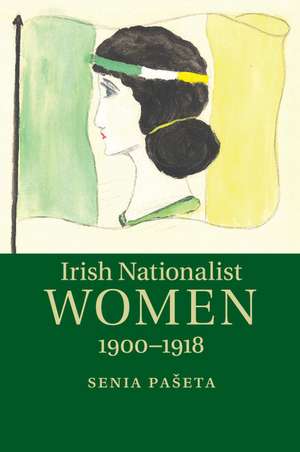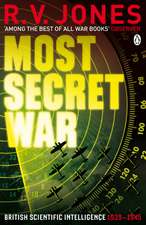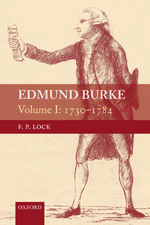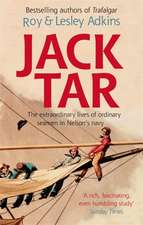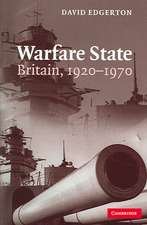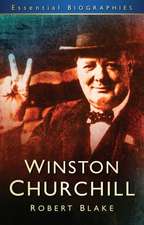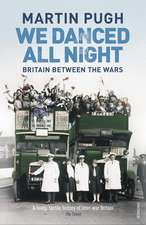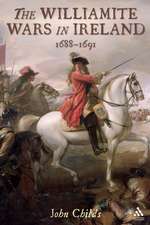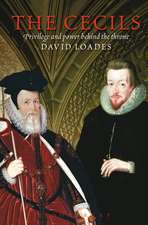Irish Nationalist Women, 1900–1918
Autor Senia Pašetaen Limba Engleză Paperback – 2 noi 2016
| Toate formatele și edițiile | Preț | Express |
|---|---|---|
| Paperback (1) | 286.13 lei 43-57 zile | |
| Cambridge University Press – 2 noi 2016 | 286.13 lei 43-57 zile | |
| Hardback (1) | 726.42 lei 43-57 zile | |
| Cambridge University Press – 4 dec 2013 | 726.42 lei 43-57 zile |
Preț: 286.13 lei
Nou
Puncte Express: 429
Preț estimativ în valută:
54.77€ • 59.51$ • 46.04£
54.77€ • 59.51$ • 46.04£
Carte tipărită la comandă
Livrare economică 21 aprilie-05 mai
Preluare comenzi: 021 569.72.76
Specificații
ISBN-13: 9781107677876
ISBN-10: 1107677874
Pagini: 306
Dimensiuni: 152 x 230 x 15 mm
Greutate: 0.41 kg
Editura: Cambridge University Press
Colecția Cambridge University Press
Locul publicării:New York, United States
ISBN-10: 1107677874
Pagini: 306
Dimensiuni: 152 x 230 x 15 mm
Greutate: 0.41 kg
Editura: Cambridge University Press
Colecția Cambridge University Press
Locul publicării:New York, United States
Cuprins
Introduction; 1. The movement; 2. Daughter of Ireland; 3. Politics, theatre and dissent; 4. Old nationalism; 5. New nationalisms; 6. Social activism; 7. Loaded with sedition; 8. The fight; 9. After the Rising; 10. Feminism and republicanism; 11. Triumph and disenchantment; Epilogue.
Recenzii
'Based on extensive archival research, Irish Nationalist Women, 1900–1918 effectively reassesses the significance and diversity of female constitutional and radical nationalism. Set against the backdrop of one of the most pivotal periods in Ireland's modern history, it provides new insights into women's politicking before they possessed the right to vote and stand as MPs.' Diane Urquhart, University of Liverpool
'Senia Pašeta complicates and deepens our understanding of politics in a formative period in Irish history. This is a nuanced analysis of nationalism and feminism which at once is challenging and insightful. Drawing on a substantial body of archival material, this book will stimulate debate and prompt further discussion on a fascinating period of Irish history.' Maria Luddy, University of Warwick
'This work transforms our understanding of the relationship between the suffrage movement and Irish nationalism in the years 1900–18. Drawing on a wide range of new sources, Pašeta shows that suffrage was at the heart of revolutionary nationalism, and that the polarisation between feminism and nationalism has been overstated.' Mary Daly, University College Dublin
'An important book … a history that deepens our understanding of the entire period.' Irish Times
'Irish Nationalist Women, 1900–1918 restores the decisive role of women to other important episodes in early twentieth-century Irish history … [it] has opened a rich field of inquiry, and one worth pursuing into the less celebrated terrain of post-independence Ireland.' Mo Moulton, Reviews in History
'Pašeta's clearly written and well-organized study of politically engaged women elucidates the interplay between the ideals of nationalism and feminism during this seminal era of Irish history.' Frank A. Biletz, Journal of British Studies
'In her comprehensive volume, Irish Nationalist Women, 1900–1918, Senia Pašeta places women as the central focus of her research utilising an array of primary source materials. The depth of research incorporating archival papers of individuals, organisations, journals, newspapers and previously published memoirs is an impressive element of this book … [This] is a captivating read that will surely inspire others to research further into aspects uncovered by Pašeta.' Dr Sonja Tiernan, Irish Studies Review
'Senia Pašeta's extremely well-researched study of early twentieth-century Irish nationalist women … wonderfully recreates the world of politically active Irish nationalist women during the turbulent years at the start of the last century, and it does so with some real sympathy for the people under scrutiny … she offers us a deeply researched and powerful account of a very significant subject. Our understanding of women's role in Irish nationalism - and therefore of Irish nationalism itself - is greatly enriched by this excellent study.' Richard English, Dublin Review of Books
'Senia Pašeta complicates and deepens our understanding of politics in a formative period in Irish history. This is a nuanced analysis of nationalism and feminism which at once is challenging and insightful. Drawing on a substantial body of archival material, this book will stimulate debate and prompt further discussion on a fascinating period of Irish history.' Maria Luddy, University of Warwick
'This work transforms our understanding of the relationship between the suffrage movement and Irish nationalism in the years 1900–18. Drawing on a wide range of new sources, Pašeta shows that suffrage was at the heart of revolutionary nationalism, and that the polarisation between feminism and nationalism has been overstated.' Mary Daly, University College Dublin
'An important book … a history that deepens our understanding of the entire period.' Irish Times
'Irish Nationalist Women, 1900–1918 restores the decisive role of women to other important episodes in early twentieth-century Irish history … [it] has opened a rich field of inquiry, and one worth pursuing into the less celebrated terrain of post-independence Ireland.' Mo Moulton, Reviews in History
'Pašeta's clearly written and well-organized study of politically engaged women elucidates the interplay between the ideals of nationalism and feminism during this seminal era of Irish history.' Frank A. Biletz, Journal of British Studies
'In her comprehensive volume, Irish Nationalist Women, 1900–1918, Senia Pašeta places women as the central focus of her research utilising an array of primary source materials. The depth of research incorporating archival papers of individuals, organisations, journals, newspapers and previously published memoirs is an impressive element of this book … [This] is a captivating read that will surely inspire others to research further into aspects uncovered by Pašeta.' Dr Sonja Tiernan, Irish Studies Review
'Senia Pašeta's extremely well-researched study of early twentieth-century Irish nationalist women … wonderfully recreates the world of politically active Irish nationalist women during the turbulent years at the start of the last century, and it does so with some real sympathy for the people under scrutiny … she offers us a deeply researched and powerful account of a very significant subject. Our understanding of women's role in Irish nationalism - and therefore of Irish nationalism itself - is greatly enriched by this excellent study.' Richard English, Dublin Review of Books
Notă biografică
Descriere
A major new history of the experiences and activities of Irish nationalist women in the early twentieth century.
